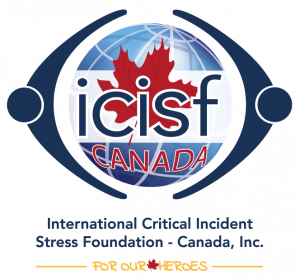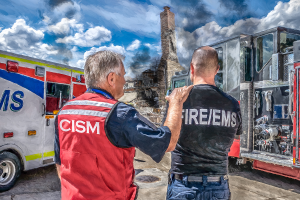ICISF-Canada was recognized in 2019 with the ICISF “Co-Founders Award of Excellence in Crisis Intervention” for their work in establishing a robust network of over 1300 trained peers who deliver support to their public safety colleagues. ICISF-Canada started in Alberta and has grown to support CISM Teams and organizations across Canada.
A CISM Team is a group of colleagues who are representative of an organization’s frontline workers who, through the nature of their operational duties, are exposed to hazards that increase the risk of developing a psychological injury. A CISM Team is trained and certified in a peer support delivered form of crisis intervention. The trained CISM Peers assess and then implement the most appropriate peer support interventions. Peers operate under the guidance and with the support of a Clinical Director. A CISM Team most often is comprised of a CISM Peer team lead and a Clinical Director. Larger organizations may also include a CISM Coordinator. Most teams operate with a core number of other trained CISM peers that allows them to provide effective support services to their frontline colleagues minimizing the risk of being over utilized and acquiring burnout.
ICISF-Canada has published a set of recommended CISM Team Standard Operating Procedures. The standards set out how a team operates, from the frequency and agenda of CISM Team meetings to reviewing peer contacts and how to practice peer support skills. The standards also set out recommendations for frequent refresher training, to how to maintain and upgrade skills. CISM BEST PRACTICES & PROCEDURES MANUAL


